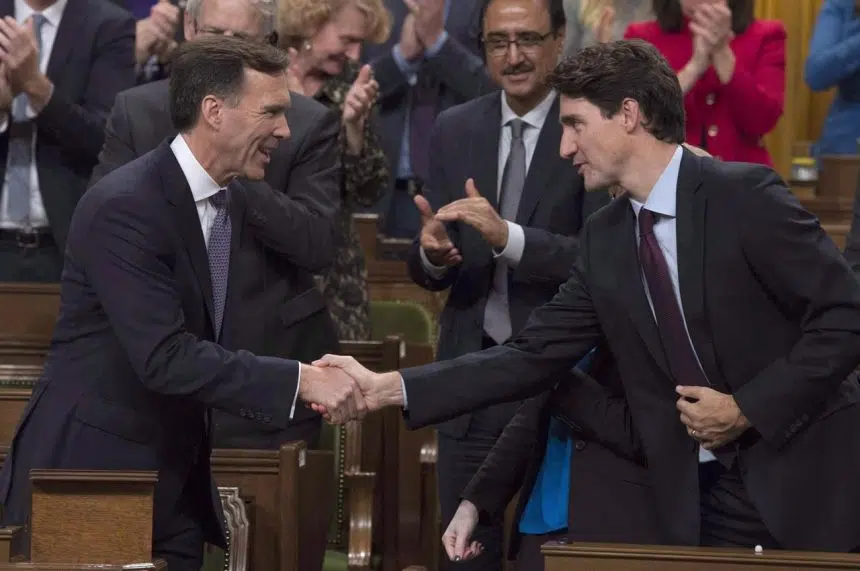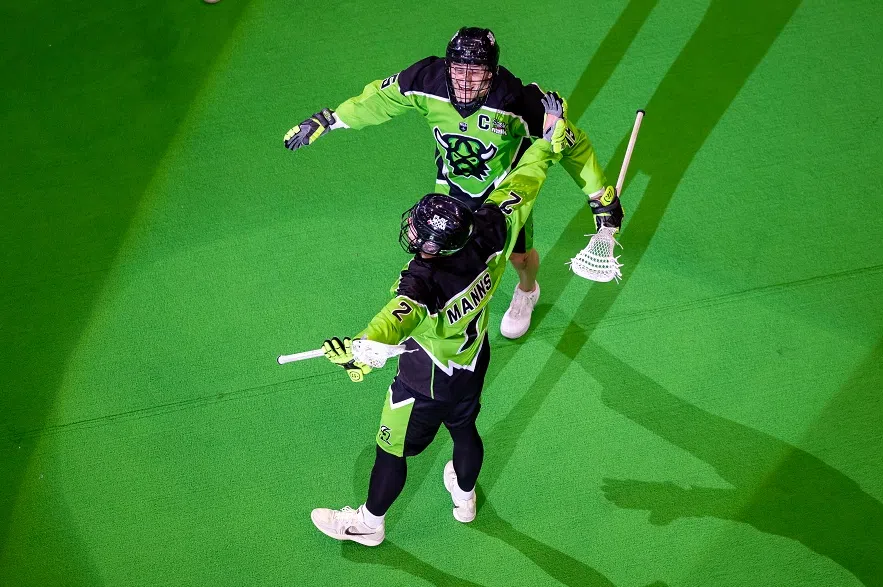OTTAWA — The Liberals are paving the road to the next election with a mid-mandate budget focused on fulfilling some on-brand promises, while potentially saving room for flashier, big-ticket items that will come closer to voting day in 2019.
“The hints thus far seem to be around that they are going to play to their strengths, which is smart politics when you’re about a year and a half out from an election,” said Greg MacEachern, a former Liberal strategist with the lobby firm Environics Communications.
The overarching theme of the federal budget being tabled Tuesday will be one of gender equality, which Prime Minister Justin Trudeau — a proudly self-proclaimed feminist — has made a big priority for his Liberal government, including throughout his travels abroad.
Finance Minister Bill Morneau has already suggested the focus on equality will manifest itself largely as efforts to boost the participation of women in the workforce, part of an overall plan to promote so-called inclusive growth, including for the middle class the Liberals targeted on the campaign trail and in government.
“One of the bigger goals is that if we want to sustain reasonable rate of economic growth over the next decade, we need to bring more people into the labour force,” said Tammy Schirle, an economics professor at Wilfrid Laurier University in Waterloo, Ont.
That is expected to include measures such as dedicated paid leave for new fathers — or, in the case of same-sex relationships, the non-birthing parent — aimed at allowing parents to more equitably distribute the burden of caring for children.
It could also mean the money needed to achieve the long-awaited goal of closing the gender wage gap in federally regulated workplaces.
Ottawa is also expected to ramp up efforts to increase the diversity of those who bid on public procurement contracts, potentially alongside other measures aimed at lending support to female entrepreneurs and increasing their access to capital.
For the first time in Canadian history, the entire budget has been put through a gender-based analysis, which involves examining how a certain measure could affect men and women, or boys and girls, in different ways, while taking into account other factors such as ethnicity and income.
It is not, however, expected to mean more money for child care, which was in the budget last year but proved insufficient for many stakeholders.
New Democrat MPs Sheila Malcolmson and Peter Julian wrote a letter to Morneau last week urging him to do more to show the Liberals are serious about gender equality, including by bringing in a universal child care program and working with the provinces to ensure access to free contraceptives.
The budget is also not expected to balance the books, which will no doubt feature prominently in the reaction from the Conservatives. It also remains unlikely the budget will show a revised timeline for erasing the deficit, which the Liberals originally promised to do by 2019.
Instead, the budget is expected to unveil major investments in basic scientific research and environmental conservation — including measures aimed at helping Canada meet its commitment to the UN Convention on Biological Diversity, which calls for greater protection of both land and sea.
Both are areas where the Liberals could continue to position themselves in contrast to the previous Conservative government, while preparing the ground to be able to make them part of their own legacy.
Investments in child welfare and housing for Indigenous communities, expanding a tax credit for low-income earners and measures to help Canadians upgrade their skills and otherwise prepare for a rapidly changing job market are other expected measures that fit with those themes.
“This is a chance for them to put a mark and have something that is very much their own budget,” said MacEachern.
That has been more challenging in previous years: the 2016 budget arrived only several months after the Liberals came to power, while last year’s spending blueprint was delivered in the shadow of uncertainty that accompanied the election of Donald Trump as U.S. president, he noted.
“I think this budget is a chance for them — before we start getting into the pre-election noise — to really connect with Canadians.”







